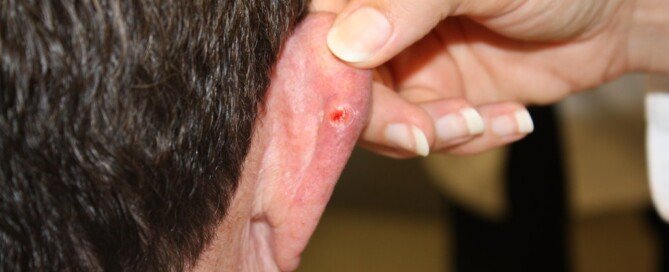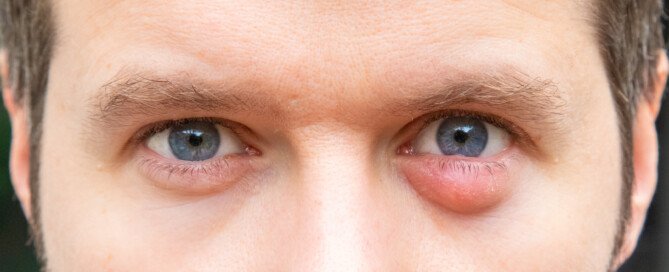Why Seated Calf Raises Always Make You Feel Like Peeing
You pee every last drop RIGHT before the seated calf raises, but doggone it, just one set makes your bladder feel full.
Now of course, the action of calf raises (weighted) doesn’t increase urine production, but the resulting bladder pressure sure feels that way. (more…)
All the Different Penis Odors and Their Causes: Cancerous Tumors Are Excluded

Penis odor not only is embarrassing but unnerving, as it brings to mind a sexually transmitted disease or worse, cancer.
A bad smell from the penis can have multiple different causes.
Bad penis odors have been described as fishy, cheesy, like a dirty Port-O-Potty or just plain foul.
“Smells in the groin area can be for a number of different reasons, ranging from diet to sexually transmitted infections (STI),” says Dana Rice, MD, a board certified urologist and creator of the UTI Tracker mobile app, which helps patients catalogue daily urinary tract symptoms, medication and behavioral patterns, and offers personalized tips for UTI prevention.
The good news is that cancer is not one of the causes.
Causes of Different Penis Smells
“Hygiene is a key component to all areas that have sweat glands and hair follicles,” continues Dr. Rice. “Bacteria tend to be more prevalent to overgrowth in moist, dark areas of the body as well.
“Making sure the skin is washed appropriately with soap and water and changing clothes regularly is a good start.”
A cheesy odor from the penis can be caused by a buildup of skin cells, moisture and secretions around the shaft, under the foreskin – especially in uncircumcised men. This situation is called smegma.
Dr. Rice explains, “Keeping the area free of moisture is also important. This can be achieved by wearing breathable undergarments, powders or even genital deodorants.
“Protected intercourse including oral, vaginal and anal penetration is also crucial in STI prevention.
“Urethral discharge or bacteria overgrowth in the area will often lead to strong smelling odor.
“Reusing undergarments without washing in-between can also accentuate the smell if there are old bacteria living in the fabric now mixing with new sweat.
“Foods can also alter the smell of urine based on pH, hydration status and how your body breaks down certain food products. Supplements are also well-known to change the odor and/or color of urine.”
Strong smelling urine can definitely affect the smell of one’s penis.
A urinary tract infection, however, does not affect the odor. For more information on the UTI Tracker, go here.
 Dana Rice, MD, is with Inova Medical Group in Fairfax, VA, and her clinical interests include bladder, kidney and prostate cancer, minimally invasive surgery and robotic surgery.
Dana Rice, MD, is with Inova Medical Group in Fairfax, VA, and her clinical interests include bladder, kidney and prostate cancer, minimally invasive surgery and robotic surgery.
 Lorra Garrick has been covering medical, fitness and cybersecurity topics for many years, having written thousands of articles for print magazines and websites, including as a ghostwriter. She’s also a former ACE-certified personal trainer.
Lorra Garrick has been covering medical, fitness and cybersecurity topics for many years, having written thousands of articles for print magazines and websites, including as a ghostwriter. She’s also a former ACE-certified personal trainer.
Top image: Shutterstock/Andrey_Popov
Nonsurgical Skin Cancer Treatment: In-Office, Great Cosmetic Results
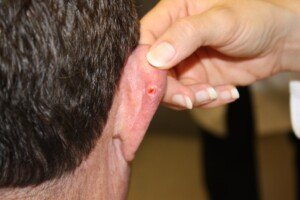
If you have squamous cell or basal cell carcinoma, there is an in-office alternative to Mohs and other surgery that yields appealing cosmetic results. (more…)
Low Back Pain when Bending Over Sink to Wash Hair: Solutions

Have you found that while washing your hair over the sink, you must repeatedly straighten to relieve the pain in your low back?
Certain exercises will make the situation more tolerable.
For the people who experience this problem, the obvious solution of washing one’s hair in the shower isn’t always appealing.
So let’s put that obvious solution aside and focus on how to prevent or minimize low back pain when bending over the sink to wash one’s hair.
The “pain” is more like an aching or soreness, but if it’s accompanied by tingling or shooting-type pains that stop you dead in your tracks, you should see a doctor.
Otherwise, low back ache when sustaining the bent-over position to wash one’s hair in the sink is actually very normal.
It arises because the low back (lumbar muscles) is called on to perform a function that it is not designed to do: carry a load.
The lumbar or erector spinae muscles are small in structure and designed for stabilizing the spine.
This is why they hurt when they are forced to carry a load. They are NOT designed for force production.
Though maintaining a bent-over position over the sink may not sound like force production or carrying a load, the erector spinae muscles would beg to differ.
This position puts a strain on them, causing them to absorb forces beyond what they were intended to.
As you maintain the bent-over position, the length of your torso, combined with your head, acts as a resistance “arm” to the pivot point or fulcrum, which is your low back.
People with long torsos, relative to the length of their legs (regardless of overall body height) will tend to feel more aching in their low back while bent over the sink.
If you’re really tall, however, you’ll be forced to bend over more, which will make things even more uncomfortable.
Is there a solution to this problem other than washing one’s hair in the shower?
The stronger and more durable your core is, the less aching you’ll feel while sustaining the trunk flexion.
However, being able to deadlift 275 x 5 will not do a whole lot to make the sustained spinal flexion more comfortable.
Nevertheless, as a former personal trainer, I do recommend incorporating deadlifts into your fitness plan to help. They need not be heavy, just consistent.

Deadlift. Shutterstock/Everyonephoto Studio
A big brute who deadlifts 415 can hurt in the lower back while washing his hair just as much as a little aerobics instructor who deadlifts only 60 pounds.
You need an overall core regimen, one in which duration is part of the plan, not just brief lifts of heavy weight.
I deadlift 245 for reps yet must briefly straighten out a few times while washing my hair – though I do take time to lather up and rinse two or three times, then add a conditioner and rinse that as well.
If you take up yoga, which involves sustained core-recruiting positions, this will help tremendously.

Yoga. Shutterstock/fizkes
I do yoga moves in between some strength training sets, but an entire yoga class will be much better.
Four Exercises to Reduce Low Back Pain when Bending Over the Sink to Wash Hair
I don’t do barbell bent-over rows, but as a former personal trainer, I’d have to say that making these a part of your exercise regimen will help make your lumbar region more tolerant to sustained flexion. Do 12-15 reps.

Bent-over barbell row. Shutterstock/Catalin Petolea
Another exercise that may help blunt the aching is the “good-morning.” Start out with the lightest barbell possible (many gyms have 20 lb. bars, and even five pounders) and do 12 to 15 reps.
Third, you may want to try back extensions using back extension apparatus. Do not hyperextend your back.
Go only as high as making your entire body in a straight line. Going slightly past this is okay, but don’t overextend. Do 15 to 20 reps.
“One of the easiest things to do is to engage the lower core stabilizers,” says Dr. Tom Carpenter, corrective exercise specialist, certified personal trainer and chiropractor.
“Imagine a spot one inch below the navel and pull it towards the spine. Practice holding this isometric contraction while breathing normally.
“This engages the abdominal core stabilizers and protects the lower back when bending forward.”
For all first three exercises, increase resistance over time as 20 reps become easy. For the back extensions, hold a plate or dumbbell to your chest.
Despite developing a strong and durable core, you may still experience back discomfort or aching while bending over to wash your hair in the sink.
This is because, as mentioned, the erector spinae muscles were not designed to sustain resistance in this position.
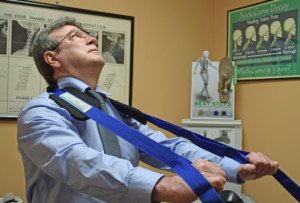
Photo credit: Aleesia Forni
Based upon 30+ years of experience, Dr. Carpenter’s practice approach reflects his belief that restoring optimum health and function will enable his patients to enjoy a much greater amount of vitality and wellness. Chiropractic care is true health care, not sick care!
 Lorra Garrick has been covering medical, fitness and cybersecurity topics for many years, having written thousands of articles for print magazines and websites, including as a ghostwriter. She’s also a former ACE-certified personal trainer.
Lorra Garrick has been covering medical, fitness and cybersecurity topics for many years, having written thousands of articles for print magazines and websites, including as a ghostwriter. She’s also a former ACE-certified personal trainer.
.
Top image: Freepik.com, jcomp
How Common Is Back Pain from Lung Cancer?

You may already know that lung cancer can cause back pain, but just how often or common is this?
After all, back pain is one of the leading reasons for visits to primary care physicians and is America’s No. 1 nonfatal health problem. (more…)
Can Cancer Cause Middle Back Pain?

Pain in the middle back can be more worrisome than the lower area, since this isn’t the most common area of back pain.
Cancer as a cause of mid back pain certainly impedes upon the minds of people who suffer from cancer anxiety.
“A variety of disorders can contribute damage of intervertebral disks, vertebrae, ligaments, neural structures, muscles and fascia leading to middle back pain,” says Ioannis Psallidas, MD, PhD, Honorary Consultant Respiratory Physician, Oxford Centre for Respiratory Medicine, Oxford University Hospitals NHS Foundation Trust, who has a focus in thoracic oncology.
“Although most patients with middle back pain have a benign condition, serious, destructive diseases (for example cancer) are uncommon causes of back pain,” continues Dr. Psallidas.
“Back pain is the presenting symptom in 90% of patients with spinal tumors, and the spine is also one of the most common sites of metastasis: About 20,000 cases arise each year1.
“In a study published by Brihaye and colleagues, 1,477 cases of spinal metastases were reviewed and found that 16.5% arose from primary tumors in the breast, 15.6% from the lung, 9.2% from the prostate and 6.5% from the kidney2.”
In addition, ovarian cancer has the potential to cause pain in the middle back.
The take-home message is that if you begin having back pain, you should not lose sleep over the worry that it could be cancer.
The No. 1 cause of back pain is a combination of poor biomechanics and insufficiently trained muscles.

Shutterstock/Thaninee Chuensomchit
In other words, an average person incorrectly lifting a heavy box off the floor. This is a setup for a back strain or injury, which may not be felt right away.
Back Pain from Cancer
“Rarely, it may be the first manifestation of cancer,” says a paper in the Journal of General Internal Medicine (Deyo et al, May 1988).
The study authors point out that out of 1,975 walk-in patients at a clinic, only 13 were found to have cancer as a cause of their back pain.
Certain findings correlate to this, but these findings certainly don’t automatically mean cancer:
• At least 50 years of age
• Previous history of cancer
• Pain lasting longer than a month
• No improvement with conservative therapy
What’s scary is that the paper says that metastatic cancer, when causing back pain, may not always cause other symptoms.
When cancer causes back pain, it’s more frequently in the lower region. Thus, pain specifically in the middle back, from this disease, would be even rarer.
Quite simply, pain in the back, be it low, middle or upper, has MANY causes including inflammatory bowel disease, irritable bowel syndrome, gastroesophageal reflux disease (GERD), fibromyalgia, aortic disease, imminent heart attack, premenstrual syndrome, benign ovarian cysts and overdoing it in a yoga class.
 Dr. Psallidas is the main author of many peer-reviewed publications and book chapters in pleural disease and lung cancer.
Dr. Psallidas is the main author of many peer-reviewed publications and book chapters in pleural disease and lung cancer.
 Lorra Garrick has been covering medical, fitness and cybersecurity topics for many years, having written thousands of articles for print magazines and websites, including as a ghostwriter. She’s also a former ACE-certified personal trainer.
Lorra Garrick has been covering medical, fitness and cybersecurity topics for many years, having written thousands of articles for print magazines and websites, including as a ghostwriter. She’s also a former ACE-certified personal trainer.
.
Top image: Freepik/gpointstudio
Sources
-Gilbert RW, Kim JH, Posner JB. Epidural spinal cord compression from metastatic tumor: diagnosis and treatment. Ann Neurol 1978; 3:40–51.
-Brihaye J, Ectors P, Lemort M, Van Houtte P. The management of spinal epidural metastases. Adv -Tech Stand Neurosurg 1988; 16:121–176.
springer.com/article/10.1007/BF02596337
Bump Under Eyelid: Skin Cancer or Chalazion Cyst?
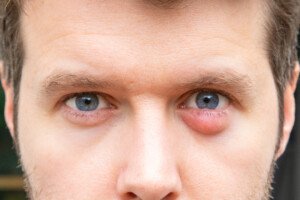
What are the hallmark features that would point towards skin cancer vs. a chalazion cyst if you have a bump under the eyelid?
Many people quickly think of cancer when they discover a “bump” somewhere on their body, and beneath the eyelid is no exception. (more…)
Can Crohn’s Disease Be Accurately Diagnosed with Only a CT Scan?
Is it possible for a CT scan to accurately show Crohn’s disease well enough for a diagnosis?
Crohn’s is a form of inflammatory bowel disease and can cause blood in the stools. (more…)
Why Is My Baby’s Eye Crusted Shut Every Morning?

Are your baby’s eyes or even just one of them crusted shut every morning?
Here is what’s causing this and what you can do about it.
“In the first few months, a parent may note one [baby’s] eye crusted shut in the morning without any redness,” says Dr. Lisa Lewis, MD, a board certified pediatrician in Fort Worth, Texas, and author of “Feed the Baby Hummus, Pediatrician-Backed Secrets from Cultures Around the World.” (more…)
TMJ Disorder Doesn’t Always Cause Jaw Symptoms
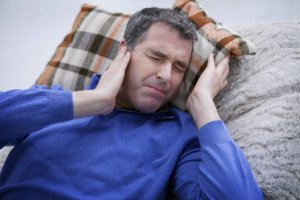
It’s a myth that TMJ disorder can’t cause symptoms that are unrelated to the jaw, chewing and biting.
Fact is, temporomandibular joint disorder can cause a whole host of symptoms — several that you’d never even think were connected to a mandibular problem. (more…)



